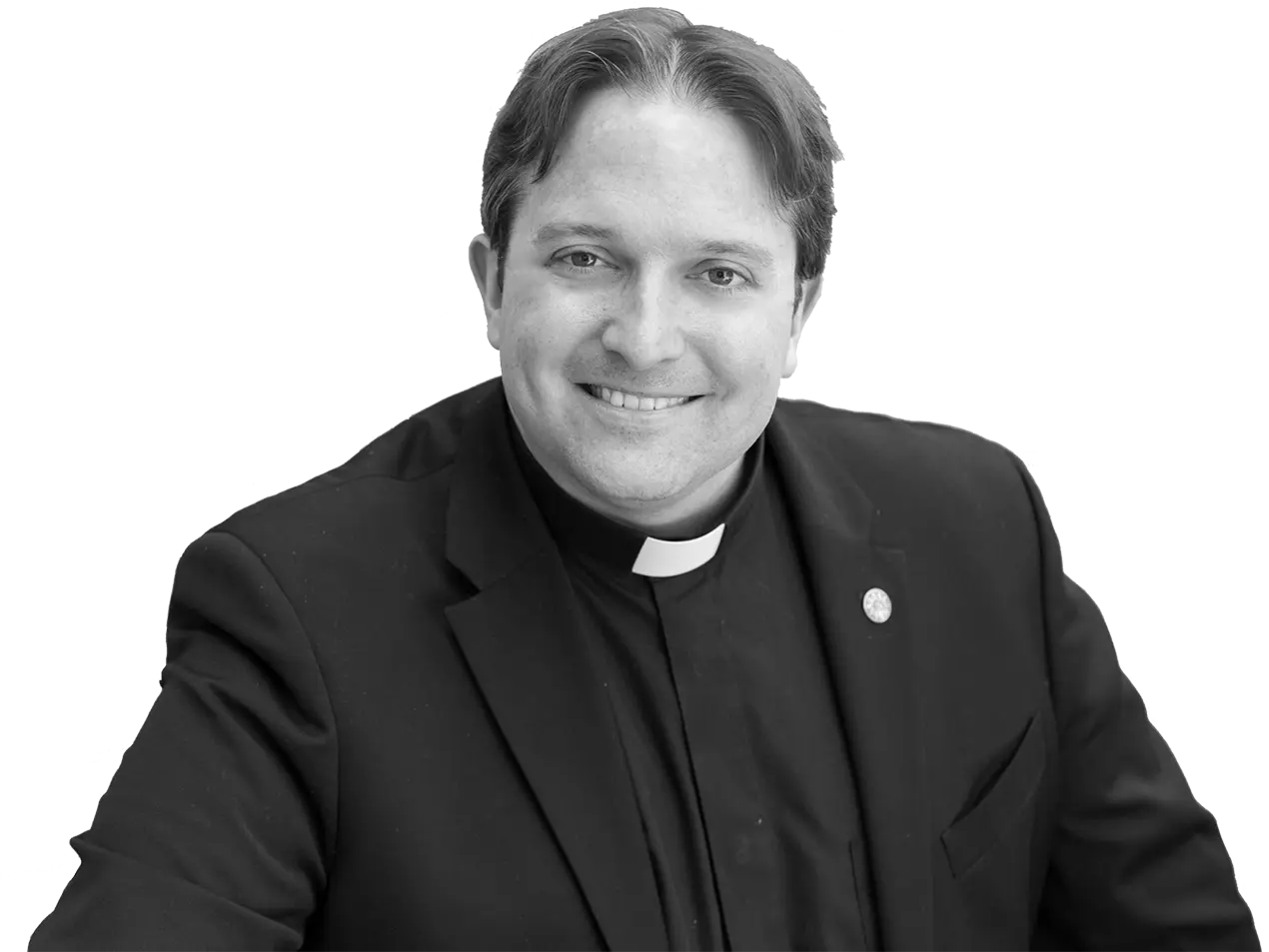 Fr Matthew Charlesworth SJJesuit PriestSociety of JesusJesuit priest working in Southern AfricaFr. MatthewCharlesworthSJ
Fr Matthew Charlesworth SJJesuit PriestSociety of JesusJesuit priest working in Southern AfricaFr. MatthewCharlesworthSJ
 22 December
22 December
Date: | Season: Advent | Year: A
First Reading: 1 Samuel 1:24–28
Responsorial Psalm: 1 Samuel 2:2, 4–8ab
| Response: 1 Samuel 2:1a
Gospel Reading: Luke 1:46–56
Preached at: the Holy Trinity Catholic Church in Braamfontein in the Archdiocese of Johannesburg, South Africa.
It is not often that we have such a coherent set of readings. The first reading comes at the end of Chapter 1 of the first book of Samuel. If one were to read the rest of the first chapter, one would learn that Hannah, the wife of Elkanah, was made fun of by Elkanah’s second wife, Peninnah for not having children (presumably that is why Elkanah took a second wife), and Hannah, distraught and upset, prayed a beautiful prayer to God and God responds by blessing her with a son, Samuel. Samuel of course will grow up to be a great priest, prophet judge and seer – and a crucial character in the history of Israel as he ruled Israel at the end of the period of the judges and was the one who anointed Israel’s first two kings.
Fertility in the Ancient World was always seen as a blessing from God, and infertility as a terrible curse. The Bible is full of stories of God blessing couples with children – and in cases where the authors want to show the power of God – it is of God blessing a couple who were infertile and even too old to even have children – but God makes it so. Hannah had begged God for a son and promised to dedicate him to the Lord should God bless her with one. That is why she has made this trip to Shiloh, and why later on we see Samuel living under the tutelage of the priest Eli when God calls him in the night. But we’re getting ahead of ourselves.
The first reading really only sets the scene for the responsorial psalm, which is known as the canticle of Hannah. Hannah’s prayer surely reminds us of another young Jewish mother, Mary, who will one day present her firstborn son in the Temple in Jerusalem. Today’s Gospel records Mary’s canticle – which we call the Magnificat – which bears a striking resemblance to Hannah’s. Both of these songs, on the lips of women and mothers, anticipate what God will do through the agency of their sons. Both describe concretely God’s saving activity as toppling unjust structures and disarming oppressive regimes.
“The bows of the mighty are broken,” declares Hannah, and Mary echoes, “He has cast down the mighty from their thrones”. “The well-fed hire themselves out for bread,” Hannah says, and Mary answers, “He has filled the hungry with good things”. These are songs of the anawim (the Hebrew word for the afflicted), the poor who have no recourse or resource of their own and must wait for God to save them. They capture the true spirit of Advent.
In our parish we do a lot of good work with the anawim – the homeless and destitute. I recall with great gratitude how you all helped with the Homeless Christmas Lunch on the 3rd of December, the Feast of St Francis Xavier. And this weekend the Community of Sant’Egidio are preparing to offer a Christmas lunch for children on Saturday, Christmas Eve, and for the homeless again on Sunday, Christmas Day. Let us give thanks that we have the opportunity to help, and let us pray that we might feel some of the joy this Christmas season that Hannah and Mary had as they praised God.